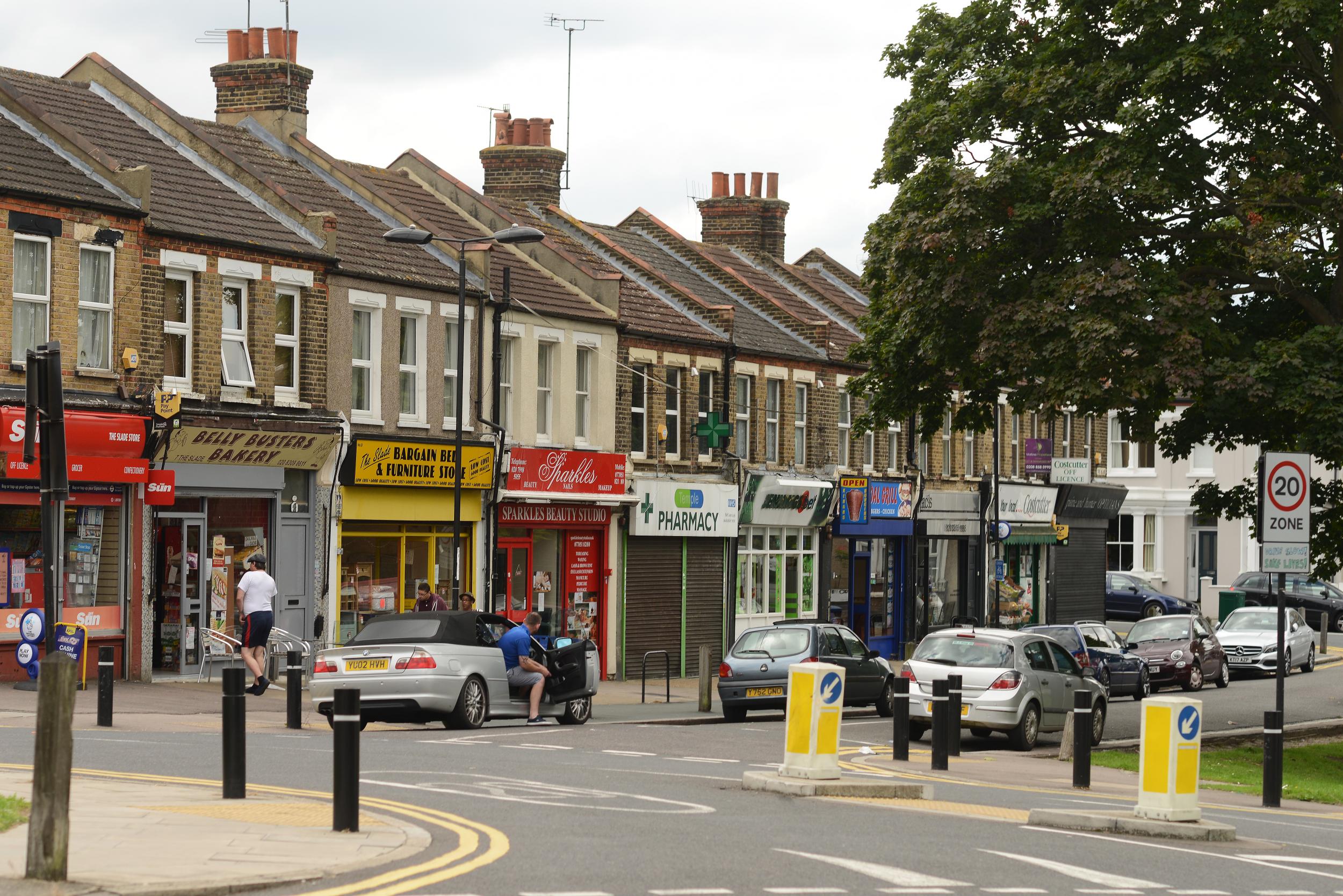Philip Hammond could have thrown a lifeline to the struggling UK high street. But he didn’t
Once a hub for communities, high streets up and down the UK are a depressing spectacle in need of vital relief from the Government

Wander round pretty much any city and town centre, move away from the main drag, and it does not take long. Empty stores, lots of them. Even on the high street itself there will almost certainly be vacant sites. And everywhere, there are charity and pop-up shops.
It’s a depressing spectacle, one that points to the lifeblood being sucked out of our once bustling communities. Of course, the rise of online is to blame, and there are many for whom digital is a boon – the sites are often cheaper and better stocked, and delivery is now impressively fast. But there ought to be more room for both.
According to the latest Office for National Statistics survey, 14.6 per cent of our retailing is online, yet that proportion is not borne out by our shopping streets. And while the boarded-up windows provide their own testament to failure, the number of units that are struggling, is not so immediately apparent – the suspicion is that it must be high.
With the drop in sales in “bricks and mortar” shops come commensurate declines in jobs and investment. As that online figure continues to climb, the traditional portion will fall. And what then? Cities and towns that resemble doughnuts, with wastelands at their heart.
The retail shift is all one way. It may become more balanced over time, but the chances of that occurring are slim – at least not without a deliberate, corrective fillip. In his Budget, the Chancellor Philip Hammond had an opportunity to provide that much-needed kick, but he let it pass.
In some respects, he did help the high street, but Hammond did not go anywhere like far enough. By switching the indexation of property values used to calculate business rates from RPI inflation to CPI inflation, the Chancellor reduced the rises faced by shops and other businesses. Under CPI, what would have been a 3.9 per cent increase, becomes 3 per cent. It’s something, but not so much as to make any radical, lasting improvement.
Any high-street retailer faces not a double, nor triple, but quadruple whammy of rent, business rates, meeting the minimum wage and the apprenticeship levy. A fifth, if you add the fact that the economy is made up of families that are “just about managing” (JAMs), that are not spending. Wage growth is lagging behind inflation, and the average household has £197 per week in discretionary income leftover after all necessities are paid. That does not buy a great amount of splurging.
Once, in a nation where upward-only rental reviews are standard, rent was the shopkeeper’s main bugbear. Often, these days, that is no longer the case. In many parts of the country, business rates match, and in some places exceed, rent. This phenomenon is particularly acute in the historic market locations, where there is a shopping district, with several key streets containing lots of shops, all feeding off a main area. To make matters worse, driving and parking in those thoroughfares is frequently difficult.
Despite the insistence on upward-only reviews, landlords are commercially-minded. They’re able to be realistic and pragmatic, to offer a cash incentive or a rental holiday to a tenant. Rather that, than have a shop lie vacant – and still be liable, albeit with a partial remedy, to business rates.
The impact of online has seen property owners take this more lenient approach; they’re more open to negotiation than previously.
This does not apply everywhere, but increasingly, in centres where there are already empty stores, they prefer to reach a compromise.
Instead of basing the business-rates formula on a slightly less punishing indexation, the Chancellor could have scrapped the updating completely this year and ordered an urgent wholesale review of the entire hackneyed business-rates system.
It’s thanks to that tired mechanism that commercial properties in Britain pay the highest taxes in the OECD, which, given the fact that we’re also leading the world in the development of retail online, cannot, surely, be justified or sustained.
In not freezing business rates, and not overhauling the tax, Hammond missed the chance to come to the aid of the beleaguered high street. He could have gone further, however, towards levelling the playing field between traditional and digital, by introducing a charge for online-only retailers. They’re not subject to the taxes that hit their bricks-and-mortar rivals. They’re all competing for the same consumer spending pot, but the former, the dotcom traders, have been gifted a massive advantage.
Better still, the Chancellor ought to have seized his annual moment to have really fired consumption by trimming VAT. A 1 per cent reduction, or a chunkier 2 per cent, would have given a huge lift to the sector. It was a good tax to target, since VAT affects everyone. If that equitable reduction had been accompanied by a tax on the online brigade, then Hammond really would have been assisting hard-pressed retailers.
But he chose to do just a little. As a result, nothing has changed. The battered retailers, the ones who resolutely occupy premises up and down high streets, still have to contend with their quadruple, or even quintuple checklist of woe. Their online competitors, by contrast, have little to detain them. It’s not fair, and if we want to preserve our city and town centres and breathe dynamism into them, we need to something about it, and fast.
Chris Blackhurst is a former editor of The Independent, and executive director of C|T|F Partners, the campaigns and strategic communications advisory firm
Join our commenting forum
Join thought-provoking conversations, follow other Independent readers and see their replies
Comments
Bookmark popover
Removed from bookmarks